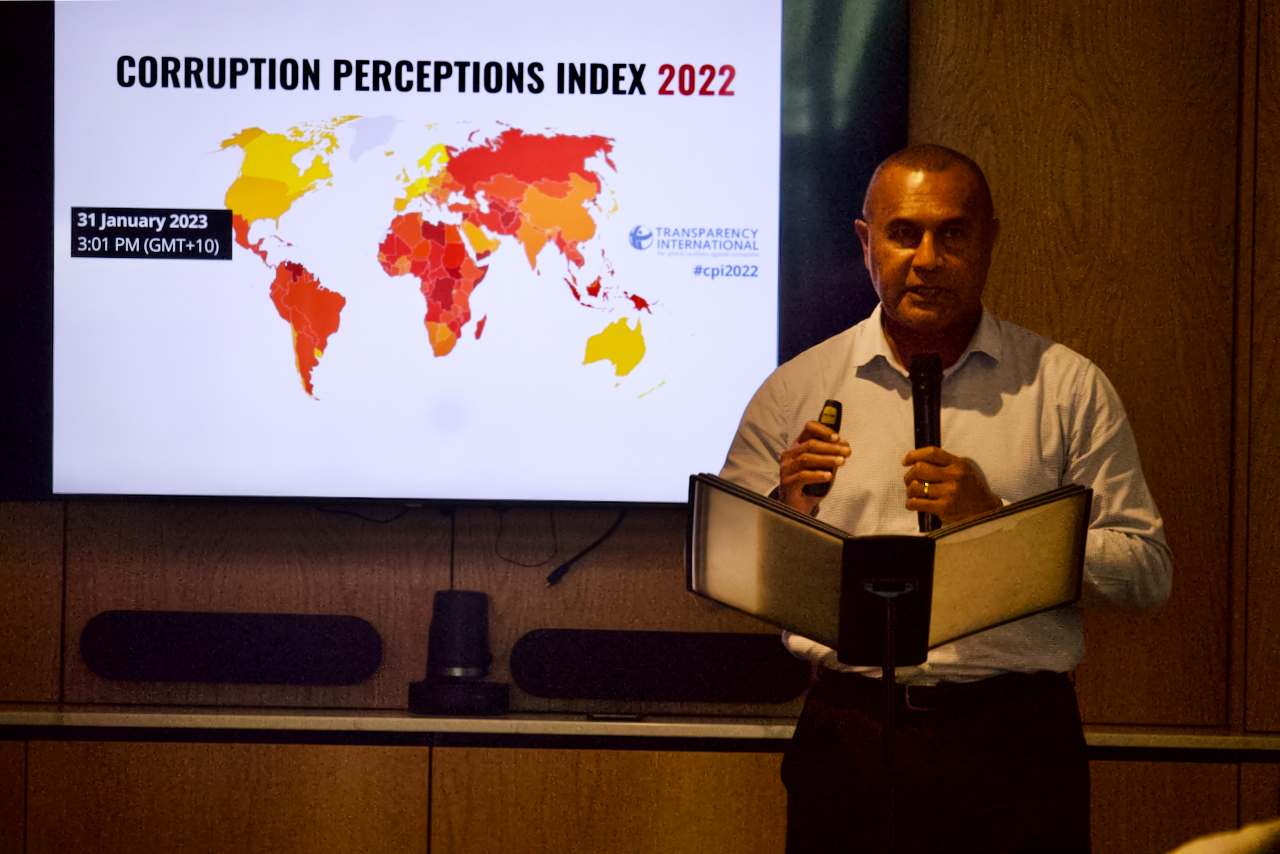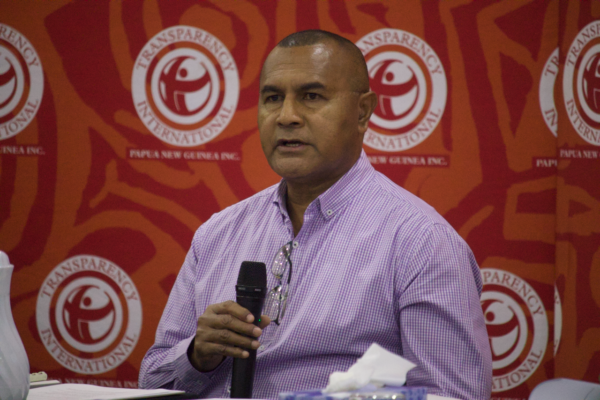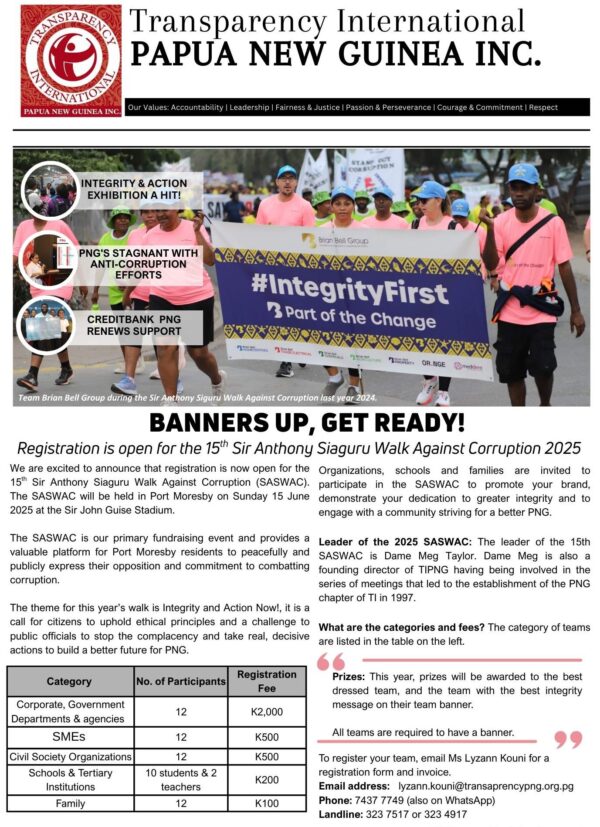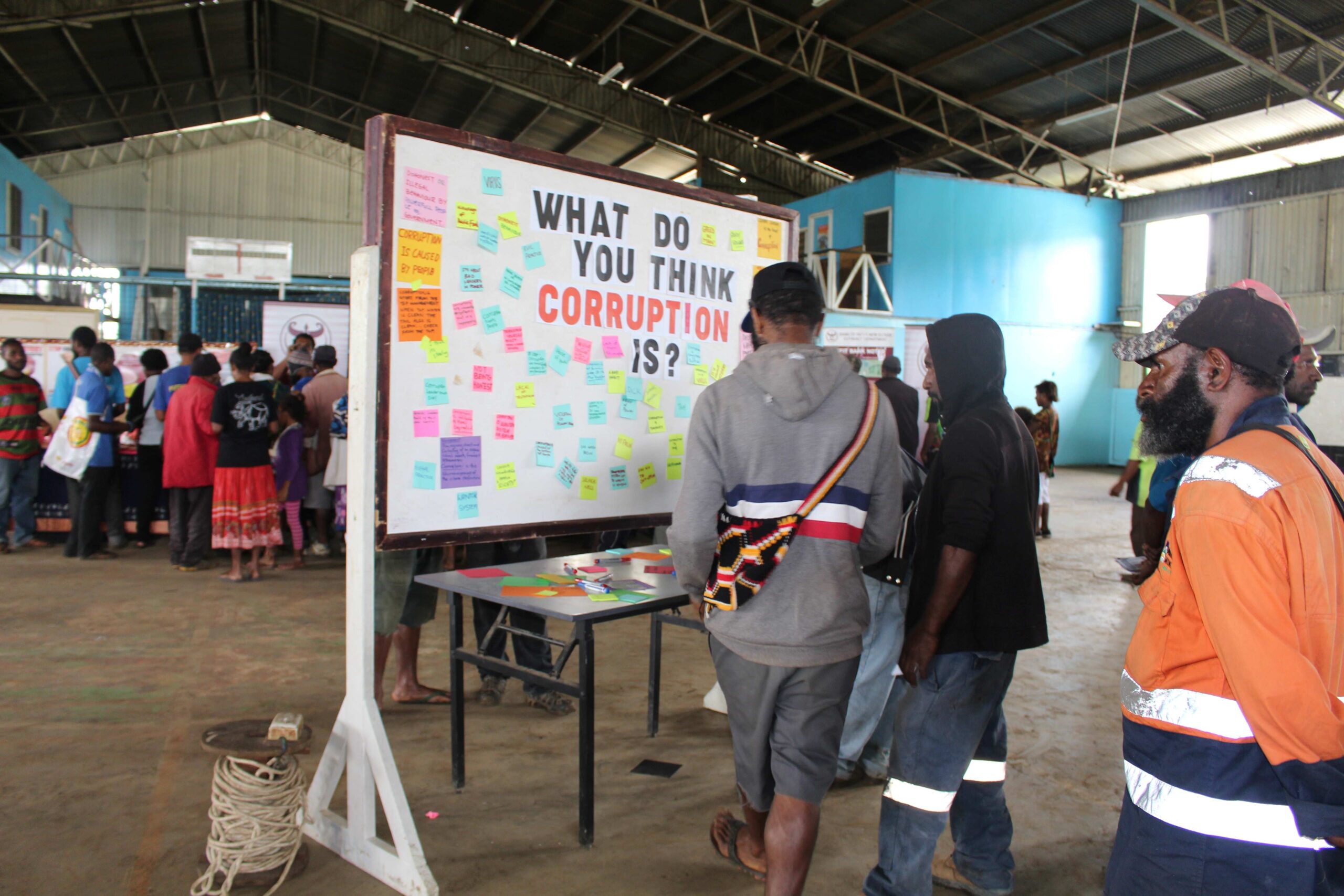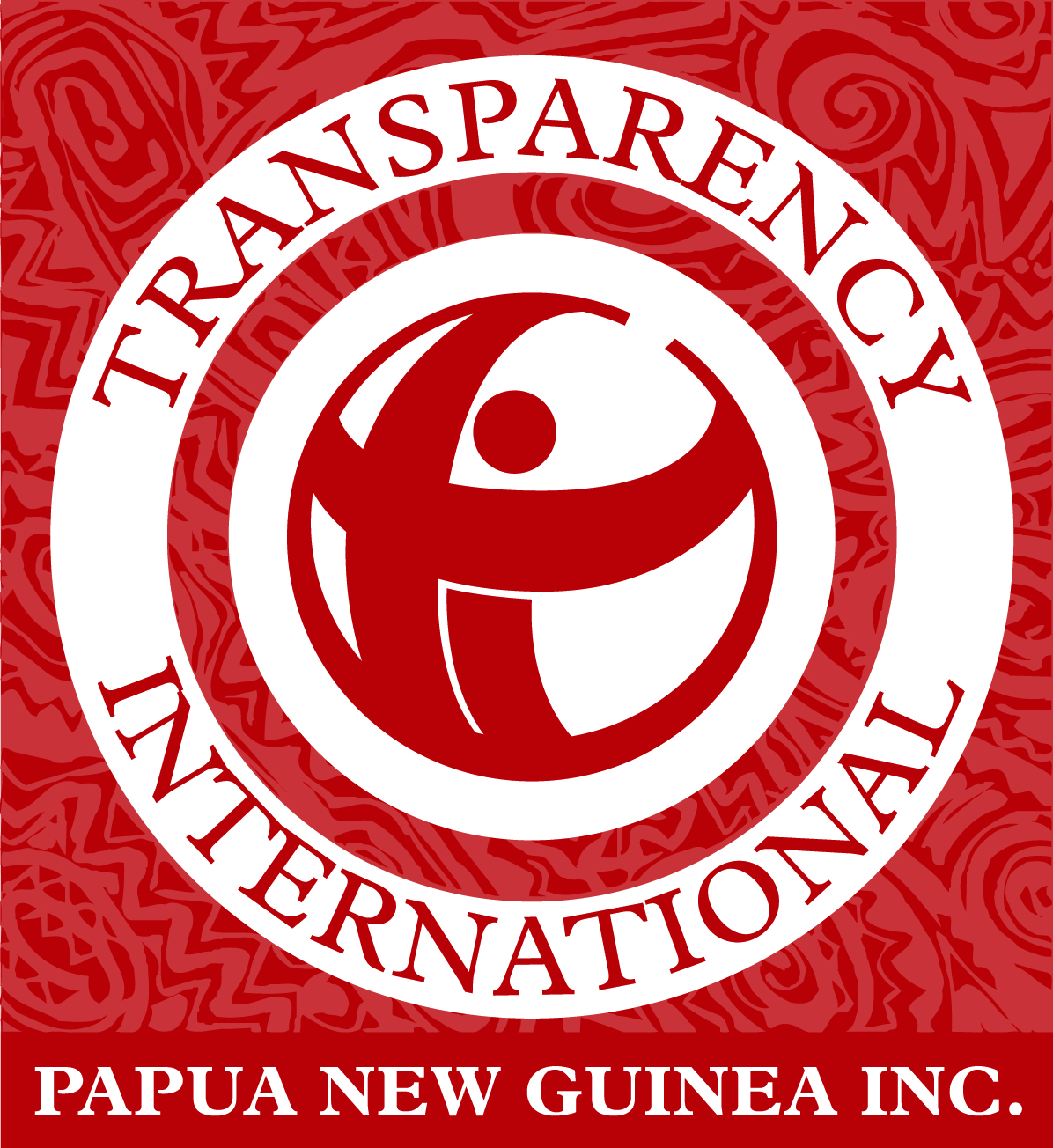Today, Transparency International PNG released the results of the 2022 Corruption Perceptions Index (CPI) in line with the uplifting of the global embargo.
The CPI is a survey that scores countries and territories around the world based on perceptions of public sector corruption. The scores reflect the views of experts and surveys from businesspeople, not the public.
The theme for this year’s CPI report is Conflict, Peace and Security. The theme hones in on how corruption fuels conflict, subsequently threatening durable peace, further putting pressure on resources, weakens the independence of watchdog agencies, fuels impunity undermines state legitimacy and weakens public trust in the state’s capacity and willingness to enforce laws.
The 2022 Corruption Perceptions Index scored Papua New Guinea a low 30 out of 100, highlighting a stagnation in the government’s efforts in clamping down on public sector corruption. While there have been positive developments, unfortunately these have largely been isolated and have not yet been fully implemented and as a result minimizing their impact and effectiveness.
In launching the 2022 Corruption Perceptions Index, TIPNG Board Chair Peter Aitsi said, “Political leaders must recognise the dire threat that corruption poses to national and international peace and security, and must make anti-corruption efforts an integral focus of foreign and domestic policy by prioritising transparency which will enable proper oversight and enable meaningful engagement of civil society in scrutinising the use of public funds. ”
Following the country’s 2022 National General Elections and all the irregularities pertaining to the administration and conduct of elections as highlighted in TIPNG’s Election Observation Report , TIPNG has recommended four core areas which, if focused on, have the potential to drastically reduce the impact of corruption in country.
TIPNG’s four recommendations are:
1. Strengthen and secure the independence of watchdog agencies: Anti-corruption agencies and oversight institutions must have sufficient resources and independence to perform their duties. Governments should strengthen institutional controls to manage risk of corruption in defence and security.
2. Improve access to public information: Ensuring the public is able to better access public information in a timely manner will assist achieve greater transparency and accountability for Government.
3. Limit private influence by regulating lobbying and promoting open access to decision-making: Policies and resources should be determined by fair and public processes. Measures such as establishing mandatory public registers of lobbyists,enabling public scrutiny of lobbying interactions and enforcing strong conflict of interest regulations are essential.
4. Combat transnational forms of corruption: Clamp down on corporate secrecy, foreign bribery and complicit professional enablers, such as bankers and lawyers. Take advantage of new ways of working together to ensure that illicit assets can be effectively traced, investigated, confiscated and returned to the victims.
Ends…///

